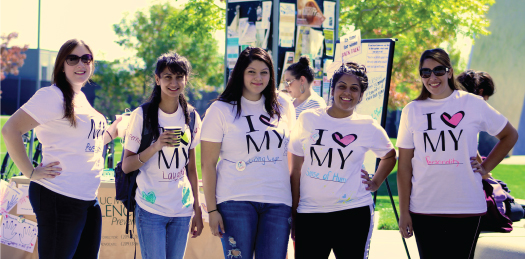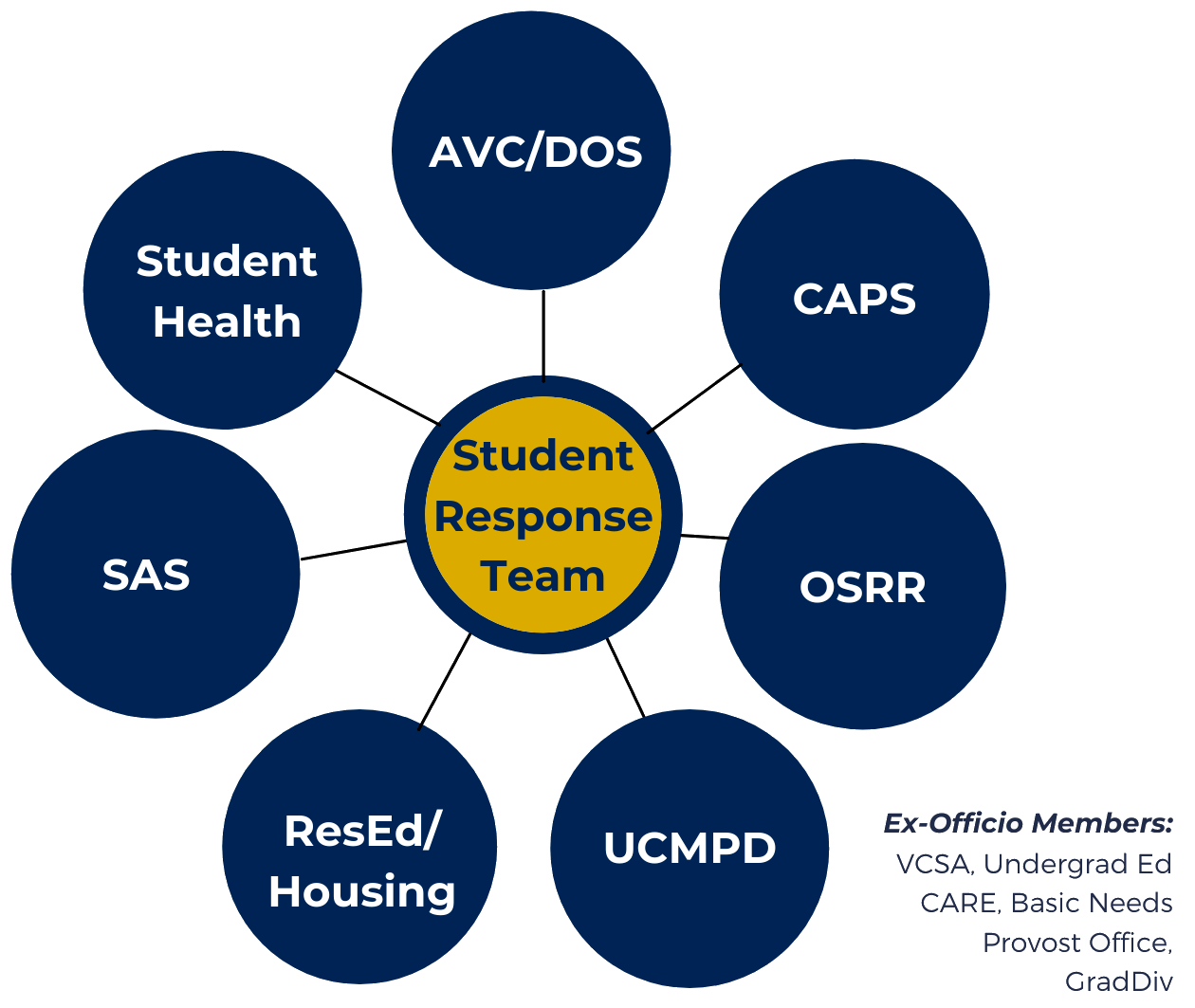PURPOSE:
The Student Response Team (SRT) is a cross-functional team that assesses, refers, and/or responds to students' concerns to help them succeed academically, socially, and emotionally.

The Student Response Team is focused on providing a quality of care in order to:
- Increase knowledge of campus and community resources
- Enrich each student’s campus experience
- Improve performance in the classroom
- Create a supportive environment to address ongoing issues/concerns
- Refer students to the appropriate resources
- Ensure that each student’s needs are addressed in a timely fashion
- Empower students to be self-advocates
- Increase retention and graduation rates
- Support faculty and staff in addressing challenges in an out of the classroom
- Gather information to assess situations involving students who display at-risk or disruptive behavior
- Recommend appropriate intervention strategies or student conduct actions
- Evaluate ongoing behaviors of students who have displayed disruptive or concerning behaviors
- Respond to a crisis situation or emergency in which there is an immediate threat of danger

If a concern arises, students, staff, and faculty are able to contact a member of the SRT or submit a concern through the Students of Concern Form which is available online through the Dean of Student’s webpage. Once a concern is reported, individualized intervention strategies are developed and employed by the SRT to ensure the student is successful. Ideally, referrers will receive acknowledgement of the referral and progress/updates when appropriate. Additionally, members from the SRT will run ongoing awareness and training workshops to ensure potential referrers, including all faculty, students, and staff, know what to look for and how to respond appropriately. We recognize that students often exhibit academic, physical, safety risk, and psychological indicators that may impact their persistence and overall wellbeing. Thus, the SRT ensures that students receive a well-defined integrated intervention plan with a clear path to success. Each plan of action will include specific, manageable, attainable, realistic, and time-sensitive goals/tasks with deadlines. Consistent communication with relevant stakeholders (academic advisor, C.A.R.E. team member, faculty member, etc.) will provide a clear path toward goal/task completion and allow for progress to be tracked longitudinally.
We Advocate. We Connect. We Care. (flyer)
MEMBERSHIP:
Brenda Ortiz
Assistant Dean for Student Advocacy and Retention
209-228-4482
Dr. Tania Gonzalez
Interim Associate Director, Counseling and Psychological Services
209-228-4266
Vacant
Interim Assistant Vice Chancellor, Student Health and Wellness
209-228-2273
Drew Shelburne
Coordinator, Student Accessibility Services
209-228-7884
Le’Trice Curl
Associate Dean of Students, Office of Student Rights and Responsibilities
209-228-7881
Doug Zuidema
Assistant Director, Office of Student Rights and Responsibilities
209-228-4552
Vanessa Hauser
Associate Director, Office of Student Rights and Responsibilities
209-228-4663
Scott Leppla
Associate Director, Student Development Programs
209-228-4560
Maria Rosales
Associate Director, Residence Education
209-228-4560
Martin Reed
Respondent Services – Assistant Vice Chancellor for Student Life & Residence Education
209-228-2977
Sergeant George Gongora
Campus Police
209-228-4217
Sergeant Kari Gomes
Campus Police
209-228-4215
Officer Rafael Chavez
Campus Police
Ex-Officio Members:
Dr. Charles Nies
Vice Chancellor, Student Affairs
209-228-7620
Faculty Senate Representative
T.B.D.
Alejandro Delgadillo
Undocumented Student Support
209-228-4625
Yesenia Curiel
CARE
209-228-7939
Bavneet Kaur
Basic Needs Office
209-631-3871



